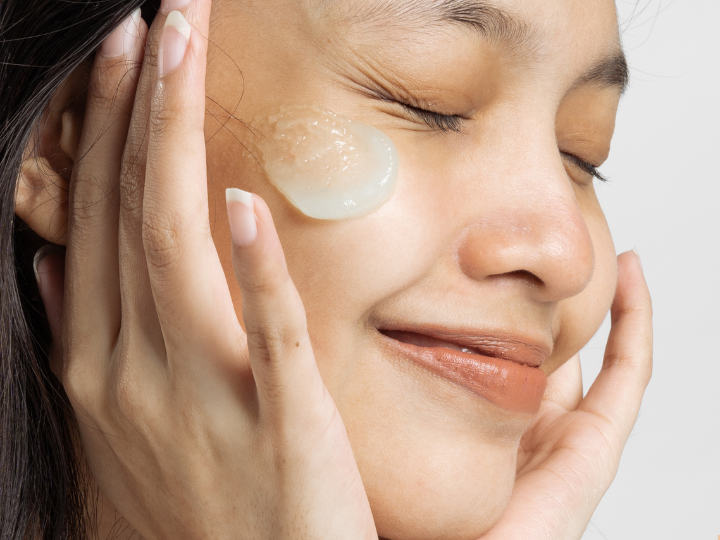Understanding What Makes a Moisturiser Effective
A moisturiser’s true value lies in its ability to provide deep hydration, strengthen the skin barrier, and maintain a smooth, healthy glow. Many products claim to offer superior results, but the secret to the best moisturiser lies in the ingredients that nourish and replenish the skin at a cellular level. Understanding these components allows you to make an informed choice and find a formula that suits your skin type while keeping it supple and radiant throughout the year.
The Role of Humectants in Locking in Moisture
In order to keep the skin hydrated and plump, humectants are crucial for drawing and holding onto water. Hyaluronic acid, which can retain up to 1,000 times its weight in water, is one of the best humectants. This potent component keeps the skin’s surface smooth and silky by absorbing moisture from the surroundings and the skin’s deeper layers. Another popular humectant that promotes sustained hydration is glycerine, which binds moisture to the skin’s surface to give it a youthful, dewy feel.
Aloe vera and urea are also great humectants that moisturise and reduce irritation, making them ideal for dry or sensitive skin. These components are essential in premium skincare formulas since they guarantee that your skin stays hydrated without feeling oily.
Emollients: Smoothing and Softening the Skin
After using a moisturiser, emollients are essential for creating a velvety finish. They improve smoothness, lessen roughness, and fill up the spaces between skin cells. Rich in fatty acids, natural oils like jojoba oil, shea butter, and macadamia oil deeply nourish the skin while preserving its suppleness.
Emollients defend against environmental damage and help replenish lost lipids for people with dry or aged skin. On the other hand, oily or combination skin types benefit from lightweight emollients like squalane and dimethicone, which provide moisture without clogging pores. Your moisturiser will provide softness without being heavy if it contains the proper ratio of emollients.
Occlusives: Sealing in Hydration for Lasting Results
Occlusives function as a barrier to stop moisture loss, while humectants draw water and emollients smooth the surface. Petrolatum, lanolin, and beeswax are among the ingredients that create a barrier that keeps the skin hydrated. Similar advantages are provided by plant-based occlusives like coconut oil and cocoa butter, which form a breathable barrier that protects the skin from dryness and inclement weather.
Because occlusives prevent water from escaping from the skin too quickly, they are particularly helpful in dry areas or during the colder months. Even in difficult situations, using a moisturiser with occlusive elements guarantees that hydration lasts longer and promotes a healthy, radiant complexion.
Antioxidants: Defending the Skin from Damage
Antioxidants are essential for avoiding early ageing and shielding the skin from environmental stresses like UV radiation and pollutants. Among the most potent antioxidants in moisturisers are vitamins C and E. While vitamin E aids in the healing and restoration of damaged skin, vitamin C brightens the complexion, balances out skin tone, and promotes the synthesis of collagen.
Strong antioxidants that fight free radicals and support general skin health include green tea extract, niacinamide, and coenzyme Q10. These components support the skin’s resilience, firmness, and youthful appearance in addition to providing hydration.
Ceramides: Strengthening the Skin Barrier
Ceramides are naturally occurring lipids in the skin that help maintain its barrier and retain moisture. Over time, factors like ageing and environmental exposure can deplete ceramide levels, leading to dryness, irritation, and dullness. Incorporating ceramides in a moisturiser restores the skin’s protective layer, preventing water loss and keeping it smooth and hydrated.
They also work synergistically with fatty acids and cholesterol to reinforce the skin’s natural defence system. For anyone struggling with dryness or sensitivity, ceramide-infused moisturisers are an excellent choice for restoring balance and resilience.
Peptides: Supporting Skin Repair and Renewal
Peptides are short chains of amino acids that act as building blocks for proteins such as collagen and elastin. When included in moisturisers, they help promote firmness, reduce fine lines, and improve texture. Peptides also boost skin repair, making them perfect for those looking to maintain a youthful, revitalised complexion.
Australian skincare brands often combine peptides with natural extracts, offering formulations that are both effective and gentle on the skin. With regular use, peptide-enriched moisturisers deliver visible improvements in tone, elasticity, and hydration.
FAQs
1. How often should I apply a moisturiser for best results?
Moisturiser should be applied twice daily—once in the morning and once before bed—to maintain consistent hydration and protection.
2. Can oily skin benefit from a moisturiser?
Yes, oily skin still requires hydration. Choose a lightweight, non-comedogenic formula to balance oil production without clogging pores.
3. Are natural ingredients always better for moisturisers?
Not necessarily. Both natural and synthetic ingredients can be effective. What matters is how they perform for your specific skin type and needs.
4. What ingredient should I avoid if I have sensitive skin?
Avoid fragrances, alcohol, and harsh preservatives, as they can cause irritation or dryness. Opt for gentle, fragrance-free formulas instead.
5. Do expensive moisturisers work better than affordable ones?
Price doesn’t always indicate quality. Focus on the ingredient list rather than the brand name to find effective and affordable options.
6. Can moisturisers with SPF replace sunscreen?
Moisturisers with SPF offer some protection but should not replace standalone sunscreen, especially during extended sun exposure.
Last Update: November 7, 2025







